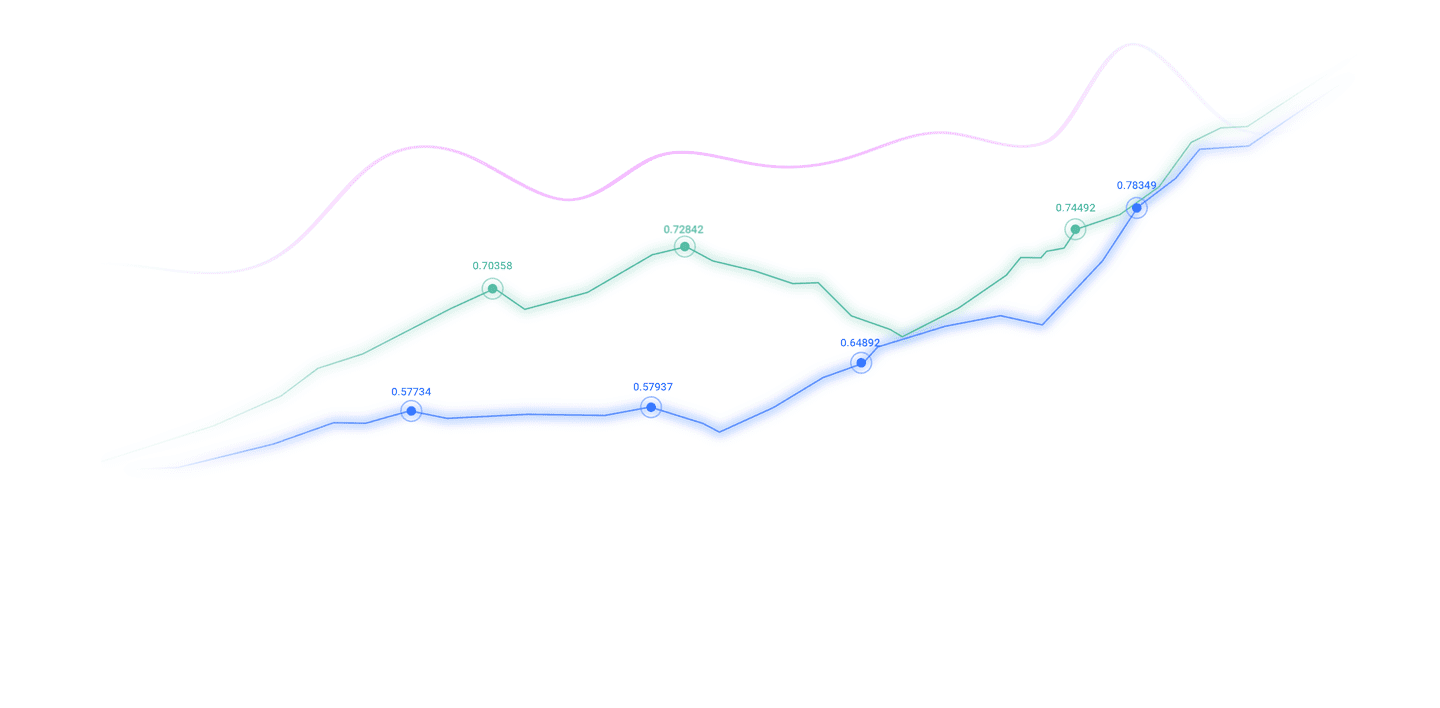Trusted by over 15 Million Traders
The Most Awarded Broker
for a Reason
CATEGORIES
News
- 【XM Group】--BTC/USD Forecast: Volatility in Consolidation - What Will Make It Mo
- 【XM Group】--Silver Forecast: Can Silver Hold Above $30?
- 【XM Decision Analysis】--USD/JPY Forex Signal: US Dollar Pulls Back Against the L
- 【XM Forex】--USD/ZAR Forecast: USD Weakens vs. ZAR
- 【XM Group】--BTC/USD Forecast: Bitcoin Continues to See Volatility During Holiday
market news
Why is zero interest rate the Swiss National Bank's choice?
Wonderful introduction:
A person's happiness may be false, and a group of people's happiness cannot tell whether it is true or false. They squandered their youth and wished they could burn it all, and that posture was like a carnival before the end of the world.
Hello everyone, today XM Forex will bring you "[XM Forex Decision Analysis]: Why is zero interest rate the choice of the Swiss National Bank?" Hope it will be helpful to you! The original content is as follows:
The Swiss National Bank (SNB) decision to cut interest rates last week (June 19) has attracted widespread attention from global financial markets. The bank cut its benchmark interest rate to 0%, a decision symbolically reinstates what was once considered outdated. Analysts believe that the return of the zero-interest rate policy, especially in the economic recovery period after the epidemic, seems particularly abrupt, causing the market to re-examine the possibility of zero-interest rate or negative-interest rate policies reappearing in other major economies.
Special dilemma of the Swiss economy
The Swiss economy faces unique challenges, and the double pressure of deflation and strong Swiss francs constitute an important background for current monetary policy decisions. According to the latest data, Switzerland's Consumer Price Index (CPI) fell 0.1% year-on-year, a phenomenon that marks the risk of deflation that the Swiss economy may face. At the same time, the appreciation of the Swiss franc has also exacerbated this problem. Since the Swiss franc is regarded as a safe-haven asset, its uncertainty in the global financial markets often appreciates, which in turn affects the xmmarkets.cnpetitiveness of Swiss exporters and threatens the stability of domestic prices.
Amid the intensification of global economic uncertainty, the strength of the Swiss franc has further boosted domestic deflationary pressure. Especially in the context of tension in the Middle East and a new round of US tariff policies, the appreciation of the Swiss franc has put the Swiss economy in more severe challenges. Therefore, the Swiss National Bank intends to reduce the attractiveness of the Swiss franc by reducing the interest rate to 0%, avoid falling into further deflation, and leave room for possible future policy adjustments to avoid entering the era of negative interest rates prematurely.
The history and controversy of zero interest rate policy
The zero interest rate policy was once one of the key tools for major central banks to deal with the financial crisis in history. After the 2008 financial crisisCentral banks in many countries have adopted this unconventional monetary policy. The European Central Bank, the Swiss National Bank, the Bank of Japan, and central banks in Sweden and Denmark have all implemented zero- or negative interest rates policies, aiming to stimulate economic demand, deal with deflation risks by lowering interest rates, and promote economic recovery.
However, zero-interest and negative-interest-rate policies are not without side effects. Bank profit pressures, distortions in financial markets and the emergence of asset bubbles have all become by-products of these policies. Especially in Japan and the euro zone, negative interest rate policies have failed to effectively promote economic growth, which has led to long-term economic weakness. Therefore, although these policies were widely used during crisis times, most economists and central bank governors today believe that the problems these policies have far exceeded their economic stimulus effects.
Unlike Europe and Japan, the Federal Reserve (Fed) does not implement a negative interest rate policy. During the financial crisis, the Fed kept interest rates low at 0% to 0.25%, and quickly took rate hikes as inflation rebounded. The monetary policy path of the United States is in sharp contrast with the negative interest rate policies of Europe and Japan.
Current monetary policy environment
Today's monetary policy environment is very different from the past. By mid-2025, the Federal Reserve's interest rate has remained between 4.25% and 4.50%, the Bank of England's benchmark interest rate is 4.25%, and the European Central Bank's deposit interest rate is 2%. Analysts believe that these interest rate levels reflect that while major global central banks gradually implement inflation control, they also hope to maintain sufficient policy space to cope with possible economic shocks in the future.
Although the Swiss National Bank's interest rate cut has sparked discussions on whether global monetary policy may return to zero interest rates, analysts believe that from the current macroeconomic environment, the possibility of other major economies re-implementing zero interest rates is low. First, global inflation remains high, and many countries have not yet met their inflation targets. For example, the euro zone has an annual inflation rate of 1.9%, close to the ECB's 2% target, but the inflation rate in the United States and the United Kingdom is still relatively high, at 2.4% and 3.4% respectively.
Conclusion
The Swiss National Bank's decision to cut interest rates is undoubtedly an important event in the current financial market, but analysis believes that it is more like an isolated case. Major central banks, especially the Federal Reserve, the European Central Bank and the Bank of England, are currently paying more attention to achieving inflation control and retaining policy space for possible economic shocks in the future. Although Switzerland's interest rate cuts have triggered discussions about changes in monetary policy around the world, analysts believe that from the current macroeconomic situation, the general return of zero-interest or negative-interest rate policies does not seem realistic; even under the pressure of a recession, central banks are more inclined to use other policy tools rather than lower interest rates below zero.
The above content is all about "[XM Forex Decision Analysis]: Why is zero interest rate the choice of the Swiss National Bank?". It was carefully xmmarkets.cnpiled and edited by the editor of XM Forex. I hope it will be helpful to your transactions.! Thanks for the support!
After doing something, there will always be experience and lessons. In order to facilitate future work, we must analyze, study, summarize and concentrate the experience and lessons of previous work, and raise it to the theoretical level to understand it.
Disclaimers: XM Group only provides execution services and access permissions for online trading platforms, and allows individuals to view and/or use the website or the content provided on the website, but has no intention of making any changes or extensions, nor will it change or extend its services and access permissions. All access and usage permissions will be subject to the following terms and conditions: (i) Terms and conditions; (ii) Risk warning; And (iii) a complete disclaimer. Please note that all information provided on the website is for general informational purposes only. In addition, the content of all XM online trading platforms does not constitute, and cannot be used for any unauthorized financial market trading invitations and/or invitations. Financial market transactions pose significant risks to your investment capital.
All materials published on online trading platforms are only intended for educational/informational purposes and do not include or should be considered for financial, investment tax, or trading related consulting and advice, or transaction price records, or any financial product or non invitation related trading offers or invitations.
All content provided by XM and third-party suppliers on this website, including opinions, news, research, analysis, prices, other information, and third-party website links, remains unchanged and is provided as general market commentary rather than investment advice. All materials published on online trading platforms are only for educational/informational purposes and do not include or should be considered as applicable to financial, investment tax, or trading related advice and recommendations, or transaction price records, or any financial product or non invitation related financial offers or invitations. Please ensure that you have read and fully understood the information on XM's non independent investment research tips and risk warnings. For more details, please click here


































































































